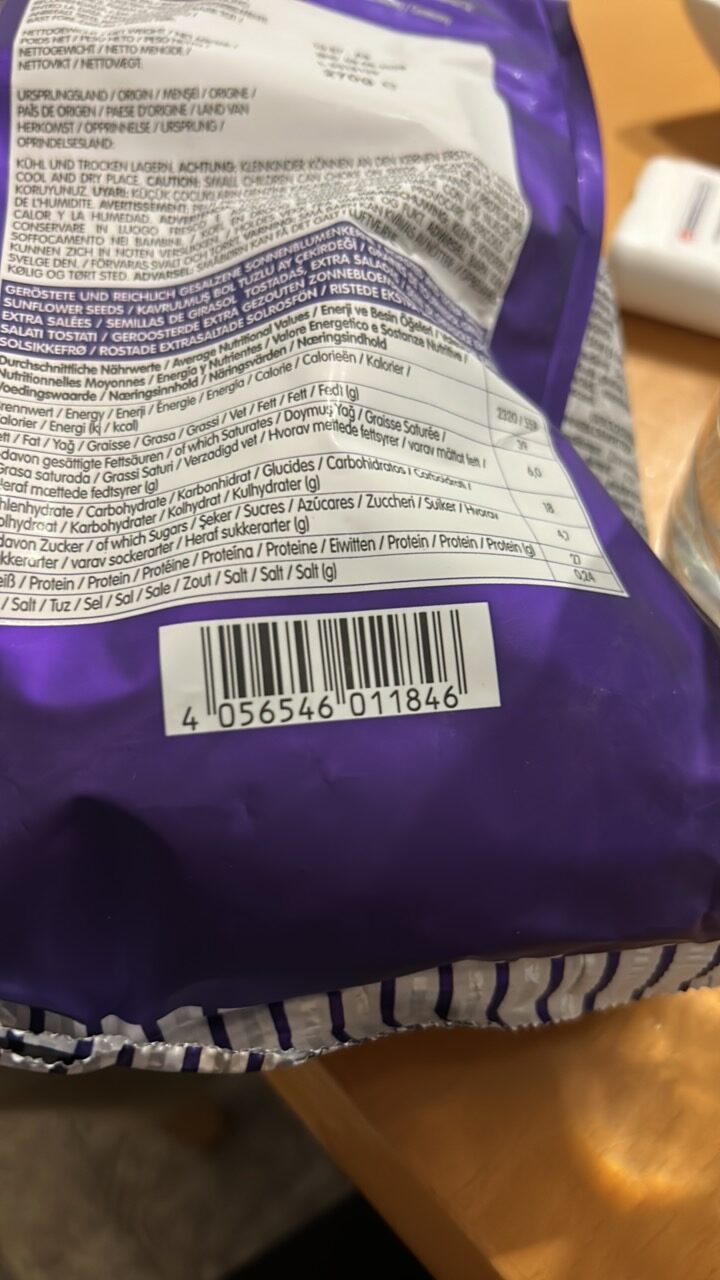
Barcode: 4056546011846
sunflower seeds
HALAL
📝 Reason: The product contains only sunflower seeds and salt, both of which are naturally Halal. There are no Haram ingredients or doubtful E-codes present in the product. According to Islamic dietary laws, plant-based ingredients are generally considered Halal unless contaminated or processed with Haram substances.
📄 Certificates: Vegetarisch, Vegan
Ingredients:
Details
Are Sunflower Seeds Halal? A Comprehensive Exploration
Sunflower seeds are a popular snack and ingredient, often enjoyed for their nutty flavor and nutritional benefits. But for those adhering to Halal dietary laws, one pressing question arises: Are sunflower seeds Halal? In this article, we will delve into the Halal status of sunflower seeds, explore their ingredients, examine any relevant E-numbers, and discuss the contexts of their brand and certifications.
Understanding Halal Status
The term ‘Halal’ refers to what is permissible or lawful in traditional Islamic law. Food and drink must be Halal for Muslim consumers to enjoy them without concerns about violating dietary laws. Fortunately, sunflower seeds meet these criteria.
Ingredients Breakdown
Our sunflower seeds contain just two simple ingredients: sunflower seeds and salt. Let’s analyze each ingredient’s status:
- Sunflower Seeds: These seeds are naturally Halal. According to general Islamic dietary guidelines, plant-based ingredients are typically seen as permissible. There are no adjacent Haram substances or complications regarding their Halal status.
- Salt: Like sunflower seeds, salt is also naturally Halal. It is a mineral that does not encounter the same scrutiny as other foods, making it acceptable in all dietary contexts.
Both ingredients do not contain any E-numbers that raise Halal concerns.
The Absence of E-Codes
Consumers often worry about E-codes (European food additives), but in the case of sunflower seeds and salt, there are no E-numbers present. Let’s break down the ingredients based on their E-code data:
- Sunflower Seeds: No associated E-code. Status: Naturally Halal, per Islamic dietary guidelines.
- Salt: No associated E-code. Status: Naturally Halal, derived in accordance with Islamic dietary guidelines.
This further confirms the Halal status of sunflower seeds as safe for consumption, backed by the absence of doubtful ingredients and additives.
Brand, Category, and Certifications
While this product is presented without a specific brand, it falls under the category of healthy snacks or natural foods. Driving the point home, the product has recognized certifications such as ‘Vegetarisch’ and ‘Vegan,’ showing it is suitable for a variety of dietary choices, including those following Halal dietary practices.
The Bottom Line: Are Sunflower Seeds Halal?
In conclusion, sunflower seeds are indeed Halal due to their simple ingredient list consisting of sunflower seeds and salt — both classified as naturally Halal. With no doubtful E-codes or Haram substances present, this product can be confidently included in your Halal diet. The commitment to using high-quality, plant-based ingredients reflects well on their Halal status, making sunflower seeds a fantastic option for snacking or cooking.
If you’re looking to add nutritious and Halal snacks to your diet, sunflower seeds should definitely be on your list. Their versatility, along with their health benefits, makes them an excellent choice for everyone, particularly those adhering to Halal dietary laws.
